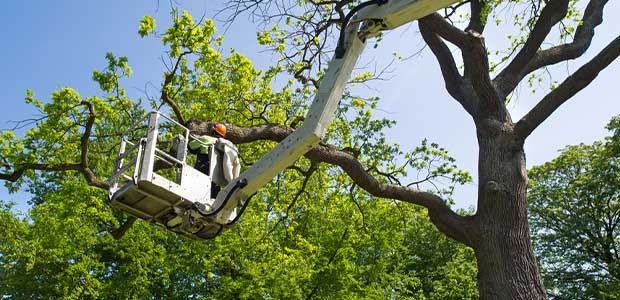
Updated Enforcement Guidance for the Tree Care Industry is Implemented
Many of the hazards found in tree care and tree removal operations are addressed by OSHA’s General Industry standards, now it’s time for an update.
- By Shereen Hashem
- Jul 15, 2021
OSHA issued a memorandum updating its enforcement guidance for compliance safety and health officers (CSHOs) when inspecting tree care and tree removal operations, according to a trade release sent out by the U.S. Department of Labor. This memorandum highlights some of the hazards that workers face while working with trees regarding care and removal operations. It also provides CSHOs with guidance on OSHA standards that address dangerous situations as well as citations under the OSHA General Duty Clause (29 USC 654(a)(1)). Addressed in the memorandum, some issues include falls, use of PPE, occupational noise exposure, machine guarding and first-aid kits.
OSHA, however, does not have a specific standard for tree care operations. The administration currently applies some standards to address the serious hazards in the industry. The tree care industry petitioned in 2008 for its own rule-making. OSHA then completed a Small Business Regulatory Enforcement Fairness Act (SBREFA) panel in May 2020. According to an article, the administration collected “information from affected small entities on a potential standard, including the scope of the standard, effective work practices, and arboricultural specific uses of equipment to guide OSHA in developing a rule that would best address industry safety and health concerns. Tree care continues to be a high-hazard industry.”
Tree care companies provide services such as removal, plant health care, pruning, cabling and bracing, transplanting, consulting, fertilization and lightning protection. According to the memorandum, fall and struck-by hazards are leading causes of death and serious injuries for tree care workers. Before beginning any tree care operation, employers need to check “the health of the tree” as well as assess the work site for fall and struck-by hazards.
If the proposed tree care standard is adopted by OSHA, it would protect workers entirely who repair, maintain or remove trees, prune and address the safe use of tools and equipment and on-site support of tree-care. To learn more about the tree care industry click here.
About the Author
Shereen Hashem is the Associate Content Editor for Occupational Health & Safety magazine.